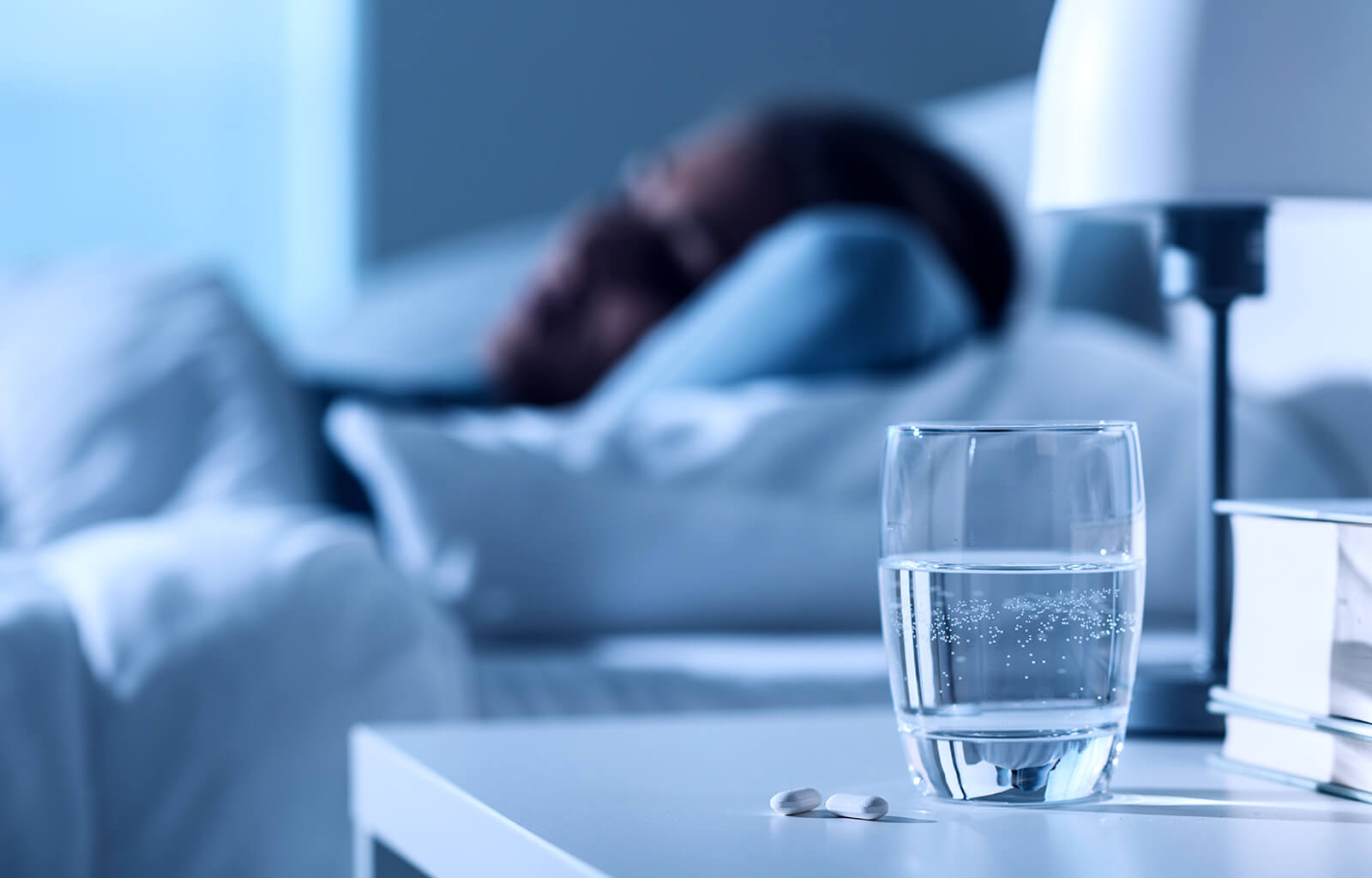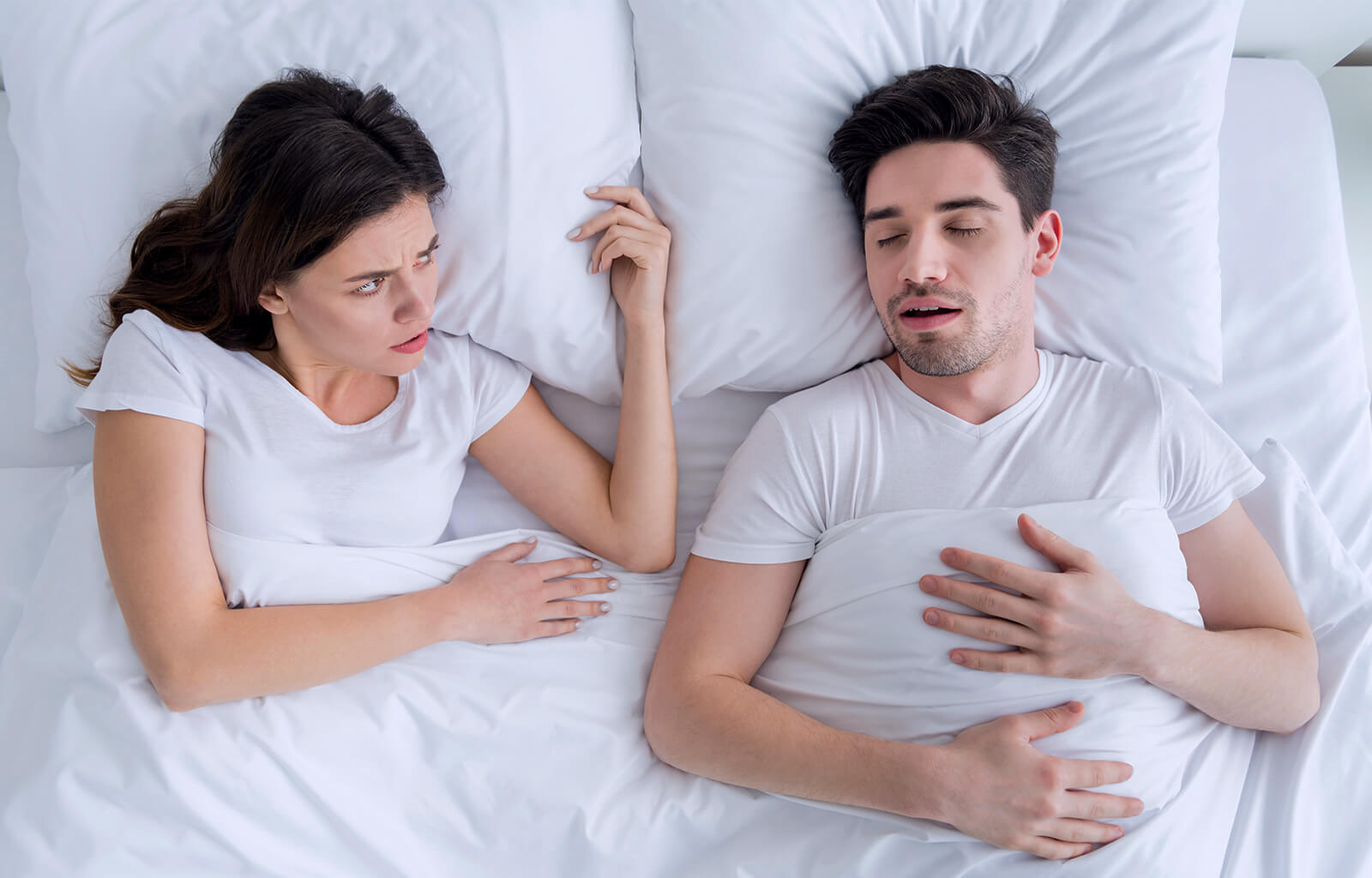
Melatonin as a dietary supplement
Melatonin is considered a miracle cure for good sleep. Dietary supplements containing melatonin can effectively combat sleep disorders, difficulty falling asleep, and jet lag, and naturally contribute to better sleep. Learn here what you should consider when taking it and the dosage to best support your sleep.
Table of contents
- Melatonin: Miracle weapon against sleep disorders
- Melatonin as a dietary supplement
- The correct dosage
- Intake and dosage forms
- Side effects and overdose
- Conclusion
1. Melatonin: Miracle weapon against sleep disorders
Melatonin is one of our body's hormones that plays a key role in regulating our sleep-wake cycle. Known as the "sleep hormone," this neurotransmitter regulates our circadian rhythm (our internal clock) and ensures that we feel tired and sleepy in the evening. As darkness falls, our body normally naturally produces enough melatonin so that we can fall asleep easily and not wake up again until the next morning.
If the hormonal balance is out of balance and our body produces too little melatonin, Difficulty falling asleep and staying asleep stand in the way of restful sleep. In particular, persistent stress, strenuous activity in the evening before bedtime, or bright artificial light can inhibit natural melatonin production and thus disrupt sleep.
In this post you will find all important information about the formation and effects of melatonin.
2. Melatonin as a dietary supplement
The good news: To compensate for a deficiency of this important sleep hormone and support its vital function in the body, melatonin can be taken in the form of dietary supplements or medications. Studies show that supplemental intake of this sleep hormone actually helps you fall asleep faster, and the European Food Safety Commission (EFSA) also confirms the positive effects of melatonin-containing supplements. However, there are a few things to consider when taking the supplement and adjusting the dosage so that you can best improve your sleep according to your individual needs. The wrong dosage or improper use can reduce the effectiveness and ultimately prevent the desired effect from being achieved.
Attention: Whether supplementing with melatonin can help with your sleep problems also depends on the underlying cause. If the underlying cause isn't a hormonal imbalance, increasing melatonin levels with a dietary supplement can only provide better sleep in the short term.

3. The correct dosage
In general, melatonin can be taken in doses of 0.5 mg to 5.0 mg per day. The amount that is actually appropriate depends, among other things, on the desired effect. For mild problems falling asleep, the European Food Safety Commission (EFSA) recommends taking 1.0 mg of melatonin daily. For jet lag, 0.5 mg of melatonin per day over a period of 4 to 6 days can be used to help the body adjust to a new time zone. Since everyone functions a little differently, how our bodies react to melatonin also depends on our individual circumstances. You should therefore always adjust the dosage to your personal circumstances.
Tip: Start with a smaller amount (e.g. 0.5 mg) and slowly work your way up to the right dose.
4. Intake and dosage forms
Melatonin supplements are available in various forms, including capsules, tablets, sprays, and drops. Capsules and tablets usually contain a precise dose of 0.5 mg or 1.0 mg of melatonin and are usually swallowed, chewed, or sucked half an hour to an hour before bedtime.
Melatonin sprays are sprayed directly into the mouth and allow for a more customized dosage thanks to the easily adjustable number of sprays. Melatonin drops are also easy to dose. Because the ingredients are absorbed directly through the throat mucosa, sprays and drops usually work somewhat faster and can be taken approximately half an hour before bedtime.
5. Side effects and overdose

Melatonin is generally harmless and well-tolerated, even in large quantities. There are currently no known warnings regarding the use of melatonin. However, improper use, such as repeated use throughout the day, can lead to mild headaches, daytime fatigue, or gastrointestinal discomfort. Therefore, you should ensure you take an appropriate dose and only take the sleep hormone before going to bed—precisely when rising melatonin levels correspond to the natural circadian rhythm and sleepiness is desired. Scientific studies suggest that exceeding the recommended maximum dose of 5.0 mg does not improve the time it takes to fall asleep.
"More is better" doesn't apply to the sleep hormone. If you want to support your sleep with melatonin, you can gradually work your way up to the optimal amount for you. Just be careful when you take a melatonin supplement, because after the onset of tiredness, at best, only one more follows. – well-deserved sleep!
6. Conclusion
-
A lack of melatonin can lead to sleep disorders as well as problems falling asleep and staying asleep.
-
The positive effects of melatonin supplements have been proven in studies and confirmed by the European Commission for Food Safety.
-
For mild sleep disturbances or jet lag, a daily intake of 0.5 – 1.0 mg melatonin recommended.
-
Melatonin is considered safe, but if overdosed or used incorrectly it can cause mild side effects such as headaches and daytime fatigue come.
Best wishes and see you soon!



Leave a comment
This site is protected by hCaptcha and the hCaptcha Privacy Policy and Terms of Service apply.